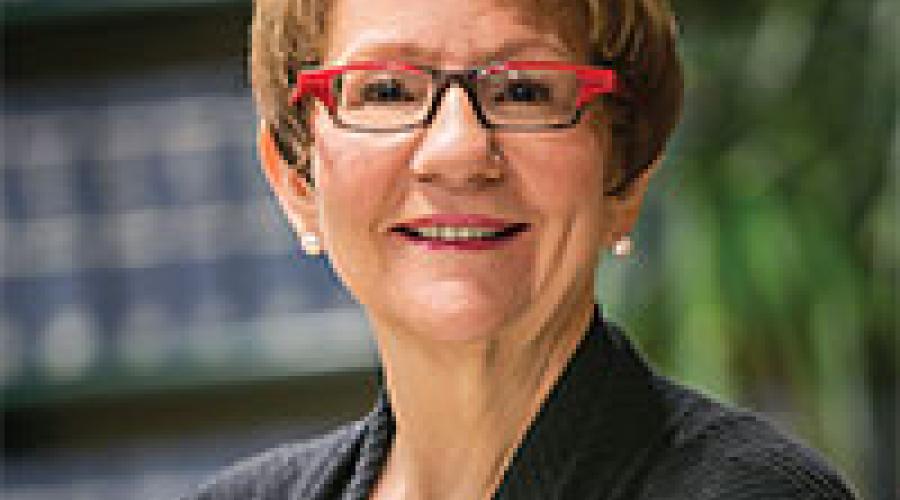
Making the World a Better Place
Growing up in the Bronx—the daughter of a dress cutter and a school aide, both of whom were union members—Esta Bigler '70 decided at age 13 she would become a lawyer.
"I saw that lawyers were in positions to improve the lives of people, so I had to become a lawyer so I could change the world. I was going to make the world a better and fairer place for workers, a place where people weren’t discriminated against," says Bigler, director of ILR's Labor and Employment Law Program.
Bigler's entrepreneurial spirit was evident by high school, when she volunteered to work for the school's college adviser, thinking it would gain her more personalized attention.
That took her on a journey that began at the ILR School and led to Georgetown University, where she earned a law degree. Then it was on to stints with the National Labor Relations Board, Vladeck, Waldman, Elias & Engelhard, P.C., and the New York City Bureau of Labor Services.
In 1987, she found herself back at ILR as a visiting associate professor of labor relations and director of a joint program with Empire State College. A year later, she was named director of the school's New York City Extension Office. She served in that post until 2005, when Dean Harry Katz asked her to develop programs for alumni and other labor and employment lawyers.
"That was literally the only instruction I got," she says, "but it was all I needed."
She created an advisory board and, incorporating advice she received from its members and ILR faculty, developed programs at the nexus of social science research and labor and employment law.
"Everyone in labor law knew the ILR School," she says. "But among employment lawyers, we did not have much of a footprint."
"My goal was to raise the school's profile and offer cutting-edge programs — showcasing ILR alumni and faculty as speakers, and demonstrating to both the labor relations bar and the employment bar that ILR is a resource. My hope was that, through our programs, lawyers would learn what social science had to offer them in meeting client needs, while faculty could see how their research was being used and what new research was needed."
And that's exactly how things played out. Today, ILR is viewed as a national resource in both labor law and employment law.
In 2012, Bigler led the launch of the nation's first consent decree repository focused solely on Title VII of the Civil Rights Act.
The database (http://cdr.cornell.edu), which has 91 search criteria, is available to the public and consists primarily of race and sex discrimination class action suits. It has had 40,000 downloads of consent decrees.
Since 2009, the Labor and Employment Law Program has presented a series of conferences on Title VII and criminal records, an area of particular concern to Bigler.
"African-American men have been arrested and convicted way out of proportion to their numbers in the population," she says. "They therefore suffer disproportionately from requirements that prevent the hiring of individuals with a criminal record, regardless of how long ago the offense occurred or its relationship to the job, which may violate Title VII, depending on the circumstances."
The program also offers forums and workshops on topics such as the National Labor Relations Act, Title VII, the Fair Labor Standards Act and the Affordable Care Act.
Bigler's entrepreneurial spirit extends into the classroom, where she developed the course "Use of Social Science Research in Labor and Employment Law."
In her classes on the Ithaca campus, Bigler teaches students skills she learned at ILR—to be analytical and to solve problems. "That's what makes one entrepreneurial," she says. "That's how I approach the world."
It's also how Bigler works to change the world, fulfilling a vow she made to herself all those years ago.